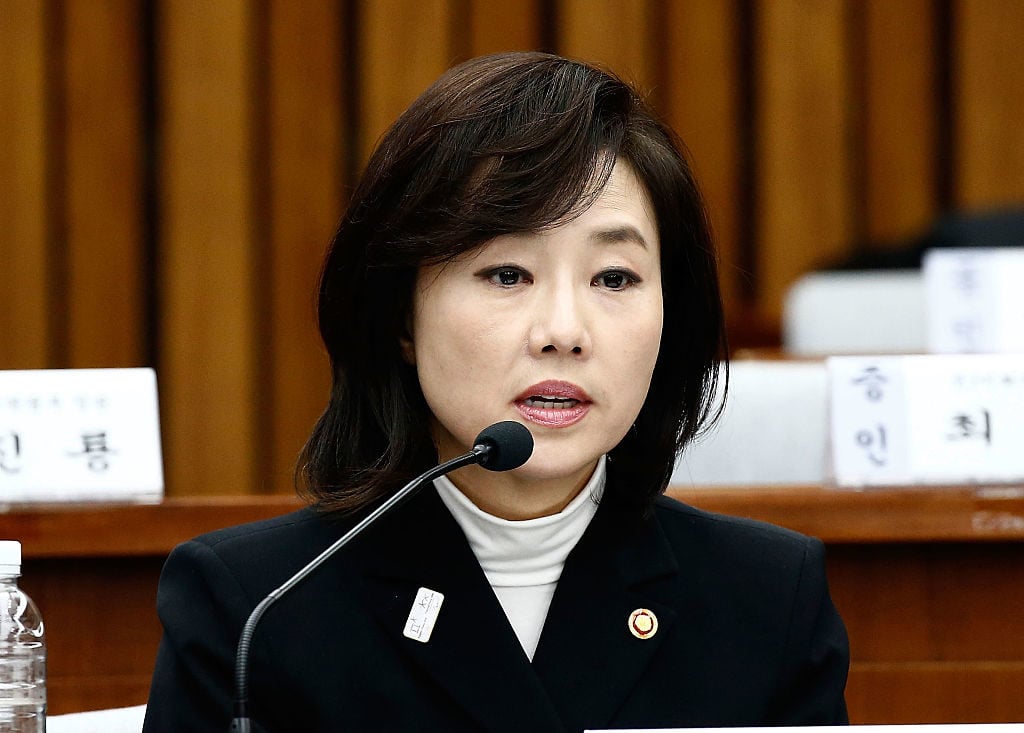Law & Politics
Former South Korean Culture Minister Charged With Abuse of Power Over Artist Blacklist
Charges reveal state tactics to cut arts funding and bar public access to critical media.

Charges reveal state tactics to cut arts funding and bar public access to critical media.

Alyssa Buffenstein

Former South Korean culture minister Cho Yoon-sun and former chief of staff Kim Ki-choon were formally charged with abuse of power and coercion on Tuesday, the former for creating a secret blacklist of artists, and the latter for spearheading the project and enforcing it.
“They abused their power to force officials… to stop offering subsidies to artists and cultural organisations that had different views from the government,” said senior prosecutor Lee Kyu-chul, according to AFP.
Impeached president Park Geun-hye, whose powers are suspended while she awaits a final decision on her impeachment from the constitutional court, was named as an accomplice in the list’s creation. Two of her former aides were also charged, in addition to Cho and Kim.
The blacklist contained the names of around 10,000 artists—including painters, poets, authors, and filmmakers—who had been critical of Park’s government, or had been vocal supporters of liberal opposition parties.
One soft spot for the government was the 2014 sinking of the MV Sewol ferry off the southern coast of the country. 304 people died, many of whom were schoolchildren.
At the time, protesters criticized the government, believing that it had covered up details of the tragedy. Some family members of victims felt anger that the impeached president did not seem to be mourning, and that the government had not recovered the sunken ferry or found the bodies of nine passengers.
A documentary about the divers who recovered the bodies, called “Diving Bell,” became a target for the creators of the blacklist. The film’s distributor, Kim Il-kwon, was put on the list.
Cho stands accused of ordering bulk tickets to the film’s premiere, in order to prevent the public from seeing it. Despite a sold-out house, “Diving Bell,” played to half-empty theaters. Kim told AFP he was “so surprised” by the empty seats, but did not know the reason until Cho’s arrest.
Kim’s distribution firm, Cinema Dal, had received financial backing from the government until he began distributing the documentary. He was forced to let go nearly half his seven-person team.
The Busan International Film Festival (BIFF) also faced a large cut in government funding after it screened “Diving Bell,” and was subject to probing from the state.
“We have gone through so many indescribable ordeals for past two years…now we know why,” BIFF co-director Kang Soo-yeon said in a statement last month.
“Those in power tried to tame the culture in line with their taste…by silencing all voices they find uncomfortable.”